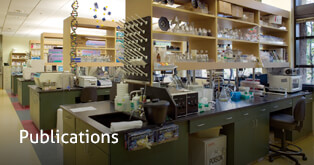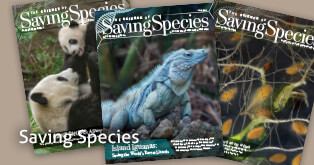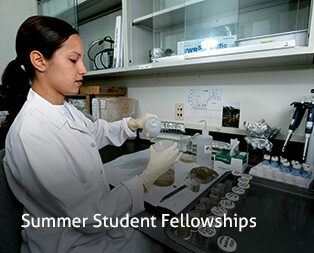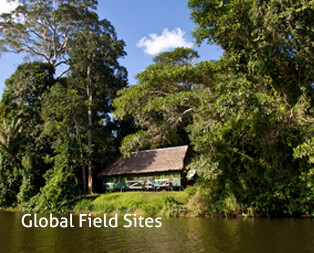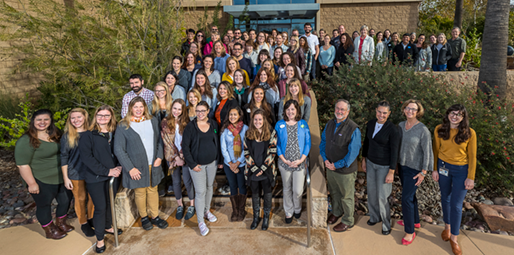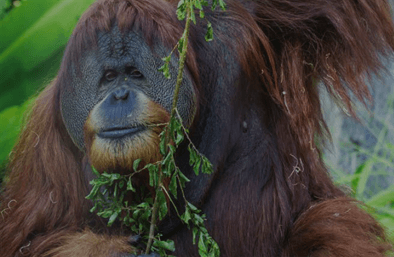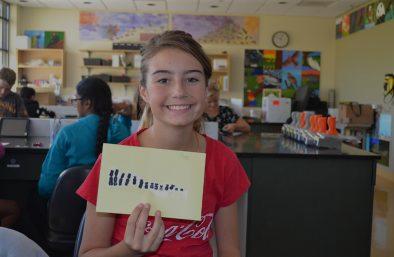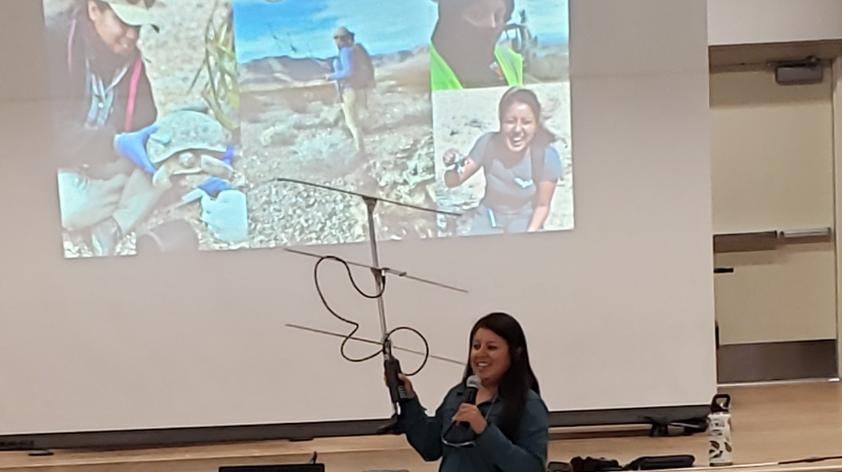
Exposing students to diverse people in STEM
Lonely, scary, and unknown. Those were the feelings constantly felt through my whole educational career. As a first generation Mexican-American, and the first in my family to go to college, it has been a solitary path I’ve had to walk. I want to help change that for others who will come after me.
Through the Advanced Inquiry Program, and its Master Plan in Action class, I came up with the vision of diversifying the face of conservation to help guide me throughout this graduate program and all the classes and projects to be completed.
During Spring semester of 2019, I underwent a Leadership Challenge in the form of giving a talk at a local elementary school, which also happened to be the very elementary school I attended. I wanted to help bring awareness to my local underserved schools about STEM careers and show them a real-life wildlife biologist (who just happens to also be a female and a person of color, me!). This talk was fun to do and the students were really interested and asked lots of questions even after the talk was over. I wanted to extend this project and take it to other local elementary, middle and high schools and even community colleges! I decided to take this expansion on as an Independent Study for my Summer semester.
Unfortunately, because it was summer, going out to classrooms at that time was hard to arrange. I contacted many schools and teachers; if they did reply they told me to get in contact with them again in the Fall once school was in session. With the help of my instructor and facilitator I was able to focus instead on putting together a synthesis paper that discusses the importance of such talks and how they have a positive influence on children of color.
With this Independent Study I was also able to partner with the Diversity Committee of The Western Section of The Wildlife Society to help kick off, curate and put together content for their Instagram page (@twswestdiversity) that features non-traditional scientists. Using hashtags and other social media distributions, we can reach a bigger audience and shed a light on non-traditional scientists and inspire students who may have a non-traditional background to pursue STEM careers.
Throughout this semester, I've learned that there definitely needs to be more research done on the importance of showcasing diverse people in science. I also learned that there is a lot of time and work that goes into making posts for a professional entity and having them approved.
This whole process has been challenging and draining, but also very rewarding. I hope to continue this path through my upcoming last semester with Project Dragonfly and beyond graduation!

